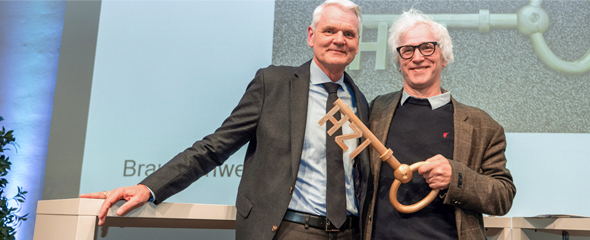Newsroom


![[Translate to English:] Press image](/fileadmin/_processed_/1/d/csm_2023_Webnews_Guzman__c_Wiley-VCH_Angewandte_Chemie_766e4cb343.gif)



HZI in the media
26.02.2026
|
Apotheken Umschau
26.02.2026
|
Deutscher Bundestag
25.02.2026
|
IFL Science
24.02.2026
|
Science News
20.02.2026
|
Deutsches Ärzteblatt
18.02.2026
|
Bionity.COM
16.02.2026
|
Phys.org
13.02.2026
|
Apotheken Umschau
12.02.2026
|
Medical Xpress
12.02.2026
|
n-tv
12.02.2026
|
Main-Post - Karlstadt
11.02.2026
|
NewsBreak
